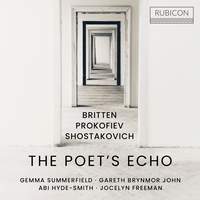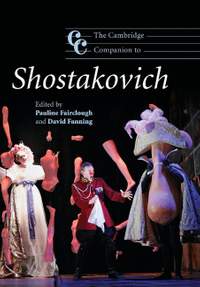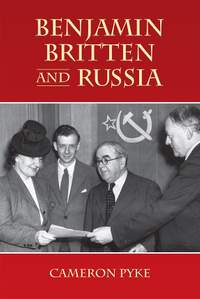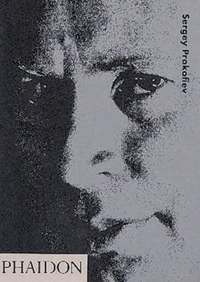Interview,
Jocelyn Freeman on The Poet's Echo
Taking its title from a song-cycle which Britten composed for his friends Mstislav Rostropovich and Galina Vishnevskaya, The Poet's Echo (released on Rubicon six weeks ago) was one of my personal favourites from March's crop of new releases: focusing on works with a connection to the writings of Alexander Pushkin, the programme also includes songs by Prokofiev and Shostakovich as well as the latter's Cello Sonata, and casts a new light on the Britten cycle by introducing a cello part in homage to one of the work's dedicatees.
Pianist Jocelyn Freeman was kind enough to answer a few questions for us via email, expanding on the creative process of re-imagining the Britten (with the support of the Britten-Pears Foundation), why all three composers drew such profound inspiration from Pushkin's poetry, and the biographies which provided her with valuable insights for the project...Shostakovich Studies
I’ve had a long-term fascination with
Slavic music and song that began in my teens, so this project was a wonderful
chance to delve a little deeper into the oeuvre and focus on the grandfather of
Russian literature. There are so many incredible settings of Pushkin’s work
that are rarely heard, and I would love to record more in due course. Gareth
Brynmor John introduced me to the Shostakovich settings back in 2019 and it has
been a wonderful journey of poetic and musical discovery, as are all the best
artistic projects!
Pushkin wasn’t a household name in
Russia prior to this point, little-known other than in scholarly and literary
circles. Stalin was familiar with his works and spent fifteen years preparing
this hitherto unconventional celebration. It was a clever move, even
opportunistic, as the political opposition had also been planning their own
celebration which could have created an undercurrent of social turmoil. Prokofiev
had received multiple commissions relating to these centenary celebrations, so
would have been well-submerged in the poet’s work, and both composers connected
deeply to Pushkin’s creative spirit, subtly balancing this with the stringent
demands placed on their output by the political regime.
Shostakovich had fallen foul to a rather
awful review of his opera, Lady Macbeth of the Mtsensk District early in 1936 and
scholars have noticed a habit for him turning to the more intimate genre of song
in times of personal conflict. I am sure the text, particularly of ‘Rebirth’
resonated strongly with him, as it contains an underlying message that genuine
works of art prevail even in the face of censorship. Shostakovich reused material
from the end of this song – in a section describing the return of ‘former
beauties’ following the defacement by a ‘barbarian-artist’ – in his Fifth Symphony.
Similarly, the exile illustrated in Pines references Pushkin’s lived experiences of exile and resounded with Prokofiev who had returned to the Soviet Union in 1936 after many years abroad in the USA and Europe. I believe it is human nature for us to seek out comfort from works of art that pre-emptively echo our personal circumstances, and I am sure these poems from around a century prior to the song cycles would have provided that for both composers.
After I first performed the Pushkin
settings four years ago, I was struck by the lyricism of the writing over an
often-bare accompaniment, and also the emotional impact of the work. There are
not many pieces where I feel completely devastated after playing the final
chord in recital, and performing these songs reminded me of Shostakovich cello
sonata. Digging deeper and revisiting the sonata was enlightening, and I discovered
particular similarities between the sonata’s development section, with its rhythmic
ostinato figure in the piano (long-short-short) and the fourth song with
similar repeated features: both are striking in their representation of the creative
repression through this austere piano part, over which a beautiful, haunting
melody attempts to blossom. I like to imagine that I am embodying the bars of a
jail cell while I play these sections, which creates a marvellous tension in
the musical duo! It’s also worth mentioning that Shostakovich writes
beautifully for the baritone voice, almost as though he had Rostropovich’s
cello playing in mind.
Britten described his knowledge of the Russian language as ‘obstinately bad’ but as an individual was remarkably hardworking: his desk in the Red House in Aldeburgh is one of the most uncomfortable workspaces I have witnessed, but he composed there daily and rigorously. I feel that this represents the dedication he had to his art. The Poet’s Echo, however, was composed in Armenia during a composers’ retreat, and in the company Mstislav Rostropovich and his wife, Galina Vishnevskaya, to whom the cycle is dedicated. The couple coached him meticulously in the language, correcting imperfections in Britten’s settings and ensuring the stresses were correct.
I love Britten’s
musical language and the integrity with which he interprets texts. These poems provided
him with a unique palette of reverberant consonants and I am particularly
struck with how he highlights the percussiveness of the language, inflecting
long phrases with richly colourful melismata.
Rostropovich has such a strong
reputation as a cellist and conductor that many people don’t know he was also a
very fine pianist! He accompanied his wife in numerous recordings, including
Rachmaninov’s fiendish ‘Spring Waters’ and his understanding of pianism would have
been evident when he collaborated with Britten as a cellist. The Poet’s Echo was composed for Vishnevskaya’s
distinctive soprano and Rostropovich as pianist, demonstrating the respect
Britten had for this multi-talented man.
Thank you so much! As with all song,
understanding the text is paramount to my interpretation, and I viewed the
arranging process as an extension of this: a recreation of Britten’s original
intent – as I do for my recital work – but with added extras! My approach was
strongly influenced by a desire to illustrate the luminous textures of
Britten’s piano recordings (such a fabulous pianist!), and to evoke his
imaginative colour palette. I thought a lot about the influence of texture on the
desired atmosphere, the way Britten interpreted the poems, and then imagined
how a cello could enhance it with the new obligato part. The first draft was wildly
imaginative. Dear Abi demonstrated great tact with several counteroffers (!)
and outstanding creativity as we explored different options for achieving
certain colours and textures.
I learned Russian for several years in Pushkin House and have avidly
programmed and coached this genre throughout my career. We were also lucky to
benefit from native speaker, Sergei Rubin, coaching both Gemma and Gareth for
ultimate finesse.
T.J. Binyon’s Pushkin: A biography is certainly
worth investigating for anyone wanting to learn more, and Ernest J. Simmons’s Pushkin.
I found The Cambridge Companion to Shostakovich (ed. Pauline Fairclough
and David Fanning) very informative with regards to the songs, as well as Shostakovich
Studies, (ed. David Fanning) and Shostakovich Reconsidered, written
and edited by Allan B. Ho and Dmitry Feofanov. Let’s not forget Benjamin Britten and Russia by Cameron Pyke, and Sergei Prokofiev by Daniel Jaffé who was a fellow
Russian-language classmate at Pushkin House.
Gemma Summerfield (soprano), Gareth Brynmor John (baritone), Abi Hyde-Smith, Jocelyn Freeman (piano)
Available Formats: CD, MP3, FLAC, Hi-Res FLAC
Edited by Pauline Fairclough & David Fanning
Available Format: Book
With an overture by Vladimir Ashkenazy
Available Format: Book







